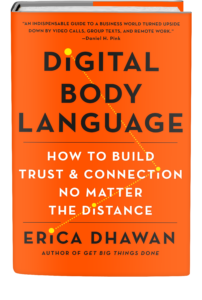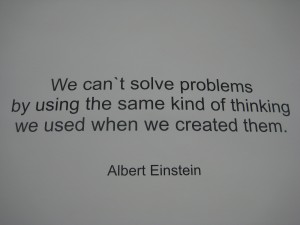Reminder for the day
The art of helping
This quote by Danish philosopher Soren Kierkegaard truly encapsulates the true art of helping:
“If One Is Truly to Succeed in Leading a Person to a Specific Place, One Must First and Foremost Take Care to Find Him Where He is and Begin There. This is the secret in the entire art of helping.
Anyone who cannot do this is himself under a delusion if he thinks he is able to help someone else. In order truly to help someone else, I must understand more than he–but certainly first and foremost understand what he understands.
If I do not do that, then my greater understanding does not help him at all. If I nevertheless want to assert my greater understanding, then it is because I am vain or proud, then basically instead of benefiting him I really want to be admired by him.
But all true helping begins with a humbling.
The helper must first humble himself under the person he wants to help and thereby understand that to help is not to dominate but to serve, that to help is a not to be the most dominating but the most patient, that to help is a willingness for the time being to put up with being in the wrong and not understanding what the other understands.”
Trust your instinct
I used to think success was all about goal-setting and alignment. If I didn’t achieve my goals, I was off-path, I needed to be re-directed again.
But a conversation with leadership researcher Marcos Salazar changed this for me. Marcos described how alignment is not always what is needed. Sometimes it is the creative things we do where we wander that allow us to come back to something profound when we connect the dots later. Sometimes we have to follow our instinct, rather than just follow what we wrote in a goals statement. There is an important balance between these two.
When did you trust your instinct, fall ‘off-path’ and only later connect the dots?
How to start a movement
Dance is a powerful metaphor to leadership. Check out this TEDtalk “How to start a movement” on the potential we have to effect the change we want and start something that attracts attention and gets followed.
[ted id=”814″ lang=”eng”]Breathing
Breathing is like leadership. We take in different air and then breathe out our own air. Leadership is about breathing out our own air while taking in other air first. It is also about never stopping but not rushing, staying synchronized with the body as it is to stay synchronized with a system.
Failure can be a catalyst for profound re-invention
Conan O’Brien’s commencement speech at Dartmouth is excellent, humorous, and heartfelt, check it out!
“It is our failure to become our perceived ideal that ultimately defines us and makes us unique. It’s not easy, but if you accept your misfortune and handle it right, your perceived failure can be a catalyst for profound re-invention.” (via dumplingboy)
[youtube http://www.youtube.com/watch?v=ELC_e2QBQMk&w=560&h=349]Making Meetings Effective
How many hours a week do you spend in meetings? Some people spend 20-30 hours a week, some even up to 40 hours/wk. Meetings take time and time is money. There are meetings that waste time and meetings that inspire people.
So, how can we make meetings not only more efficient but more effective?
A meeting is a process of communication that leads to result that begins before group assembles and commends after group dispenses. I now facilitate leadership and organizational effectiveness sessions for groups. Here are 7 inside tips (contact me if you are interested in more):
1) You have a responsibility and right to good meetings. If you a run meeting, you have a responsibility to make the meeting successful. Make sure you hear ideas that others would not have heard. Try to build off of others, use the “yes and” approach.
2) Effective meetings: An efficient meeting starts and ends on time and follows an agenda, but we never even know if real “work” got done. An effective meeting does something for organizations and balances being creative and having structure.
3) Roles: Understand the roles that you like to play and others like to play in a meeting. Roles in groups are really important: there is often a joker, cynic, dreamer, provocateur, delegator, leader, evocateur. My personal favorite: the evocateur, that is the person who is listening to the group!
4) Presencing: Be present. This is more than a physical location, a group must be mindful to what is being sensed in a meeting. Structure agendas where groups work 2 by 2’s, engage people, make them move around.
5) Update meeting agendas: Realize what the key topics are during the meeting. Create a schedule and adjust the agenda by topic rather than just having a round robin of updates.
6) Save the meeting: You can save a meeting even if you are not in charge. How? Acknowledge an issue, ask questions, summarize points, refocus an agenda, regulate to get dissention and agreement.
7) Evaluate: Do an evaluation at the end, a check-out or pluses and deltas. What went well? What could have gone better? Add the date and look at this before the next meeting.
Being Proud
Throughout our childhood, we learned through imitation, we copied from our elders and turned this into our own voice. Most of these traits were borrowed from our culture and family fields of expertise. Now, it is easy to feel ashamed that we are copying someone else. People are made to feel like don’t have agency when the act of learning can be a form of agency.
Proud people are proud of what they’ve learned. In graduate school, I am surrounded by the frontier of knowledge and oftentimes feel incompetent and unknowing. School provides me a safe environment to feel this way and encourages living in uncertainty.
Yet while in school, I am not just paying attention to what I’m learning, but also to my histories back home. I may still feel ashamed of what I’m learning, especially if it is not legitimate within my culture.
If I go back to people I use to talk to before grad school, they may give me positive reinforcement and think it is wonderful I learned what a “cost/benefit” analysis is. If I took my job offer at Deloitte afterwards, this would mean I was a grad school success.
If I say I am uncertain about my future career, they’ll think I’m crazy or have become seduced by the bubble of my school. It is easy to feel ashamed of what I’m learning.
Our challenge in school is to learn new ways of thinking but to keep asking ourselves: how can I translate this into my own language and poetry, with my own ways of analyzing the world?
I can always go back to the same business suits that I’ve worn, I know it’s comfortable, I know how it fits, people expect me to look that way. I’ll be accepted. I risk this when I try and test new ways of thinking and operating, but that is the whole point of coming to school. I’m proud of what I’ve learned.
What to Remember When Waking
In that first
hardly noticed
moment
to which you wake,
coming back
to this life
from the other
more secret,
moveable
and frighteningly
honest
world
where everything
began,
there is a small
opening
into the new day
which closes
the moment
you begin
your plans.
What you can plan
is too small
for you to live.
What you can live
wholeheartedly
will make plans
enough
for the vitality
hidden in your sleep.
To be human
is to become visible
while carrying
what is hidden
as a gift to others.
To remember
the other world
in this world
is to live in your
true inheritance.
You are not
a troubled guest
on this earth,
you are not
an accident
amidst other accidents
you were invited
from another and greater
night
than the one
from which
you have just emerged.
Now, looking through
the slanting light
of the morning
window toward
the mountain
presence
of everything
that can be,
what urgency
calls you to your
one love? What shape
waits in the seed
of you to grow
and spread
its branches
against a future sky?
Is it waiting
in the fertile sea?
In the trees
beyond the house?
In the life
you can imagine
for yourself?
In the open
and lovely
white page
on the waiting desk?
~ David Whyte ~


